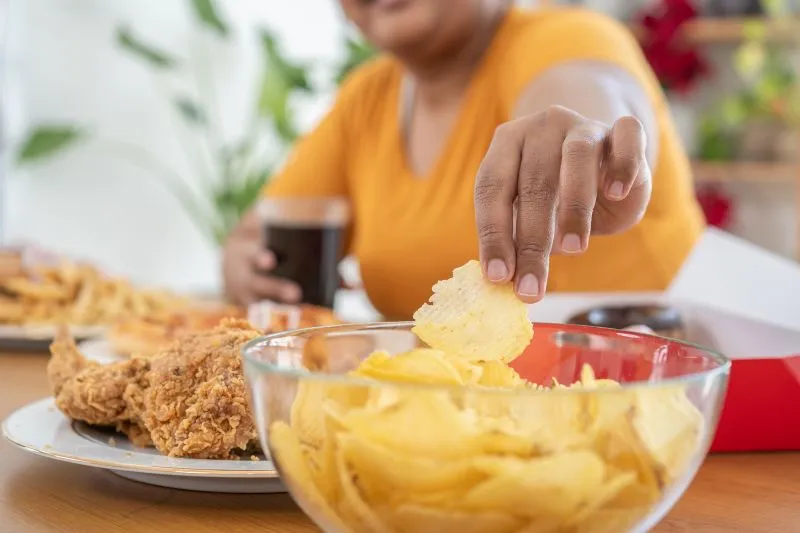Understanding the Link Between Ultraprocessed Foods and Increased Risk of Type 2 Diabetes

Ultraprocessed Foods and Their Impact on Health
Recent research indicates that ultraprocessed foods pose a serious health risk, particularly regarding type 2 diabetes.
Study Findings
- For each 10% increase in ultraprocessed food intake, the risk for developing type 2 diabetes rose by 17%.
- Reducing these foods may help decrease diabetes risk.
- The study analyzed data from over 300,000 participants over 10.9 years.
Common Ultraprocessed Foods
Items categorized as ultraprocessed include:
- Sugary drinks
- Processed meats
- Chips and savory snacks
Why These Foods Matter
Healthcare professionals highlight that ultraprocessed foods are often high in calories and low in nutritional value, a combination that contributes to weight gain and increased belly fat.
Making Healthier Choices
Instead of ultraprocessed options, consider:
- Substituting soda with water
- Choosing fruit or unsalted nuts over chips
Being mindful of the ingredients and how closely they represent whole foods is crucial for making healthier dietary choices.
Disclaimer: The information provided on this site is for informational purposes only and is not intended as medical advice. We are not responsible for any actions taken based on the content of this site. Always consult a qualified healthcare provider for medical advice, diagnosis, and treatment. We source our news from reputable sources and provide links to the original articles. We do not endorse or assume responsibility for the accuracy of the information contained in external sources.
This article was prepared using information from open sources in accordance with the principles of Ethical Policy. The editorial team is not responsible for absolute accuracy, as it relies on data from the sources referenced.